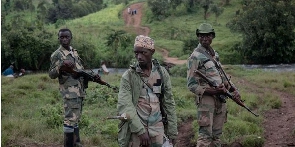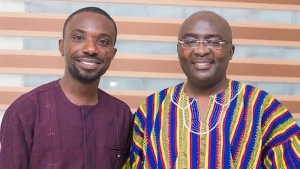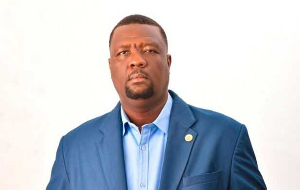Rebels from the M23 group in the Democratic Republic of Congo seized a town from the army as they continued to advance in the country's troubled east, the military said Friday.
DRC's army confirmed the withdrawal, calling it a tactical move to protect civilians in the face of renewed unrest provoked by the rebel fighters' reinvigorated offensive.
The rebels took control of Kitshanga late Thursday after capturing several villages on the road linking the town of about 60,000 people to the provincial capital Goma.
The city of more than one million people, located just on the Rwandan border, was already cut off from the north after rebels took National Highway 2 during their offensive in October and November.
Kigali denies claims
The M23, which Kinshasa charges is backed by Rwanda, took up arms at the end of 2021 and has since seized parts of Rutshuru and Nyiragongo, north of Goma. Kigali denies backing the rebels.
Under diplomatic pressure and under the supervision of a regional force deployed in the region, the rebels announced their withdrawal in December and January from two captured areas.
But clashes continued in other areas, notably towards the west towards the Masisi, an area known for farming and livestock.
After three days of fighting, the rebels entered Kitshanga, about 90 kilometers (55 miles) from Goma, despite the presence of loyalist forces and armed groups claiming to be "patriots" resisting the M23 advance.
"We have tactically withdrawn from the city in order to attract these genocidal forces deep into the city and avoid the worst for our people in Kitshanga," said Lieutenant-Colonel Guillaume Ndjike, spokesman for the military governor of North Kivu.
"We are making every effort to dislodge this enemy," he added.
"We are with the rebels here in the city," said a resident of Kitshanga who asked not to be named.
"The M23 controls all of Kitshanga and this morning the rebels are advancing" towards Walikale, he said.
The Walikale region, one of six in North Kivu province, is rich in minerals including cobalt, gold, and tinstone.
At least 14 people were killed in the fighting, according to security and health sources.
Former Kenyan president and facilitator Uhuru Kenyatta "expressed deep concern over the sharply deteriorating situation" earlier this week.
Africa News of Saturday, 28 January 2023
Source: thecitizen.co.tz
Rebels take east DR Congo town, army claims tactical retreat
Entertainment












